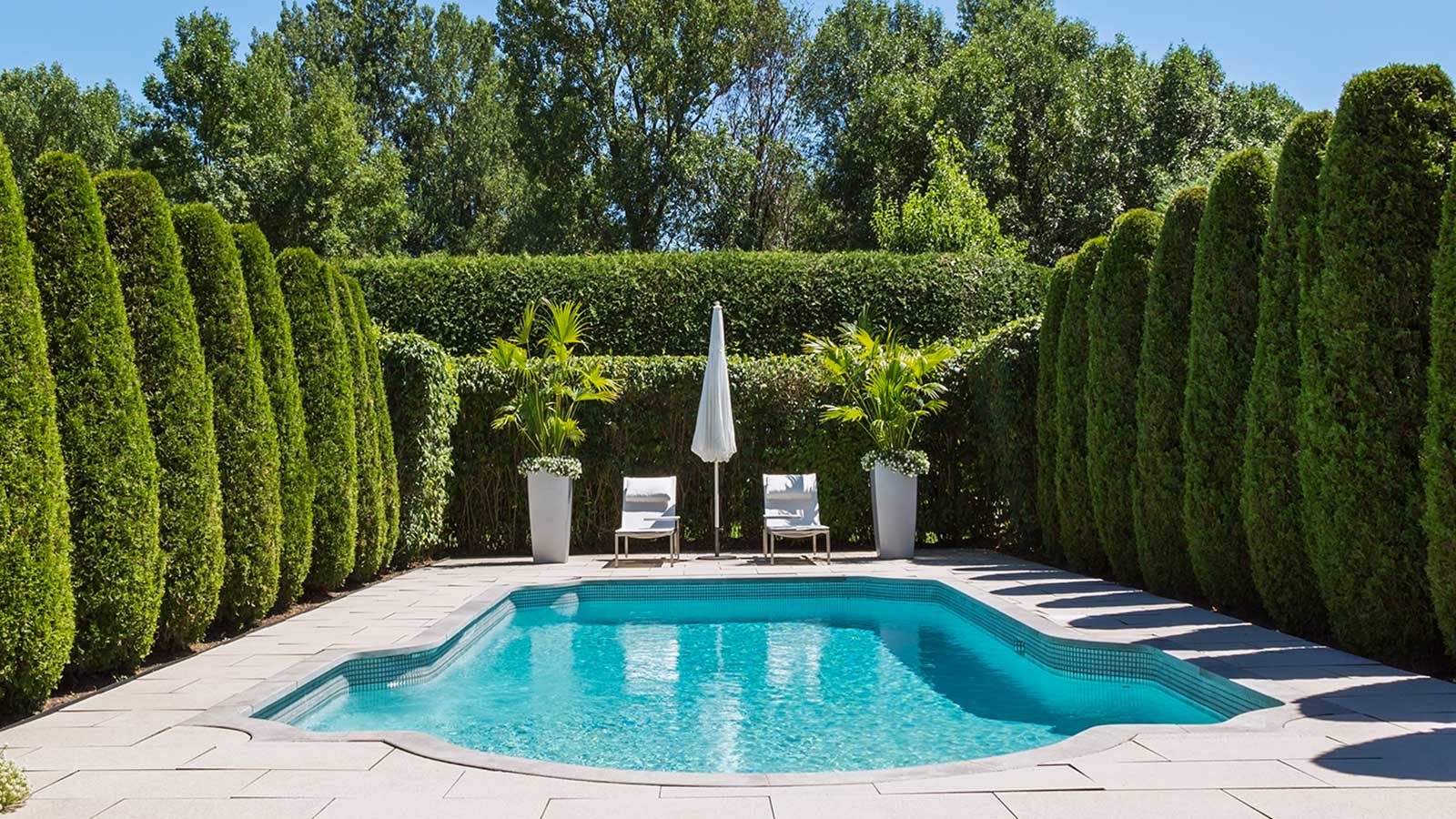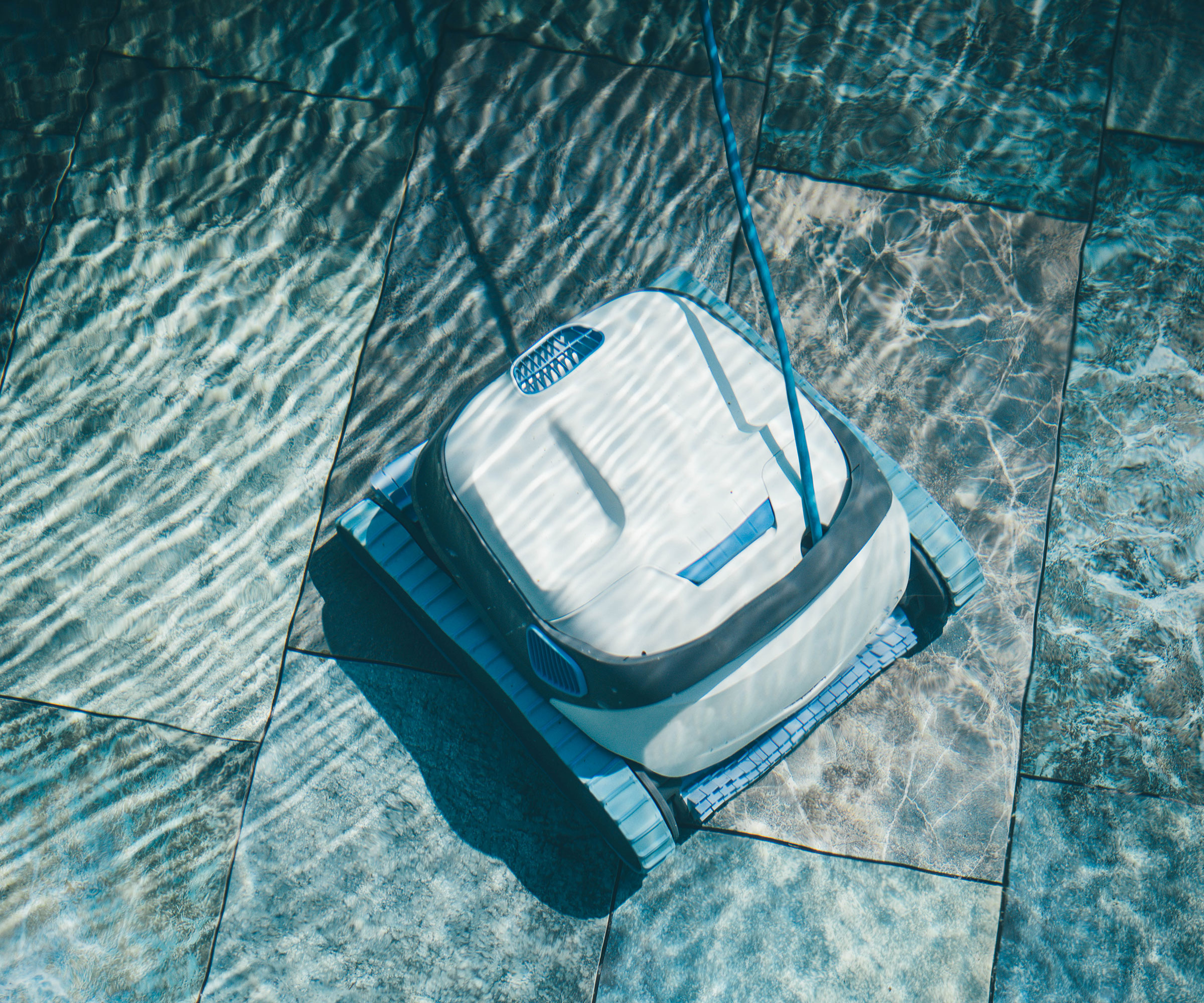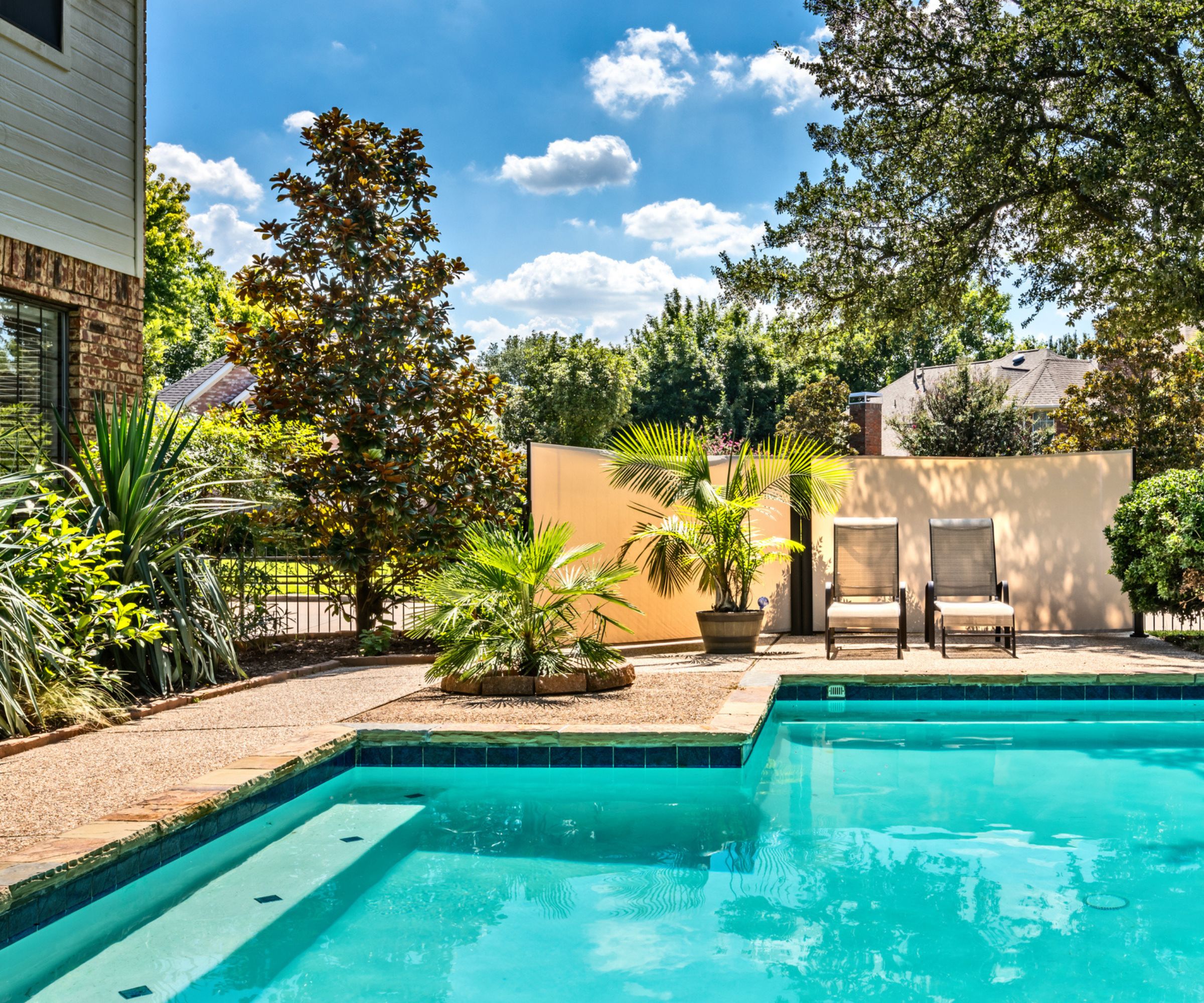
Pool ownership comes with lots of little responsibilities, and one of the most important is to vacuum your pool every week.
However, top-line suction and robot pool vacuums are pretty expensive. Add buying one of these on top of the currently inflated price of pool shock and chlorine and you're looking at thousands of dollars of equipment just to go swimming.
That's why some pool owners opt to rent pool vacuums. In theory, the low monthly cost of renting a pool vacuum could save you a lot of money. I asked an expert if the math checks out, and if it's better to buy or rent a pool vacuum.

What are the benefits of buying a pool vacuum?
The good thing about buying a pool vacuum is that you'll always have a vacuum on hand, so you can enjoy your pool all year. If you only rent a pool vacuum for the summer you won't be able to use your pool in winter. While there are many parts of the country where freezing weather makes this impossible, you could be limiting your pool use unnecessarily.
This also means that you won't have to do big cleaning jobs. Renting a pool vacuum for the summer and winterizing your pool in the colder months can save money short term, but it means that when you open up your pool next spring you'll have pretty gross green water to clean up.
Another benefit is that you don't have to worry about warranties. If you own your pool vacuum, you don't have to worry about it breaking and the warranty getting you on the hook for expensive repairs.
Ultimately, the experts recommend the ease of buying your own vacuum. Pool expert Rafi Friedman told me that 'Because it's best to vacuum your pool once a week, we usually recommend that people buy a pool vacuum.
If you want to clean a pool on a budget, this simple vacuum will do the job. It takes a little effort but will save you hundreds of dollars.
If you want the easiest clean possible, you need this robot pool vacuum. It's controlled from an app, and can clean the floor and walls of any pool.
This model is a little cheaper than Maytronics' other robot pool vacuums, and unlike their top-line vacuums, this will also work in above-ground pools.
What are the drawbacks of buying a pool vacuum?
The biggest drawback of buying a pool vacuum is the upfront cost. While there are plenty of cheap manual vacuums out there, prices for good robot pool vacuums start at around $700. It's a lot of money to spend just to clean a pool. However, once you've paid this price, you won't have the ongoing cost of renting.
The other issue with buying a pool vacuum is that if anything breaks, it's up to you to fix it, which can be tricky if you don't have much DIY experience.
Buying your own pool vacuum also means that you have to find a space to store it when you aren't using it, which is particularly tricky if you winterize your pool and need to store it for months at a time.
What are the benefits of renting a pool vacuum?

Renting a vacuum means that you can access premium pool vacuums without a huge upfront cost. Pool expert Rafi Friedman told me that 'The nice thing about renting is that you can get a much better pool vacuum for your money than you would be able to afford with a purchase option.'
You can get an expensive, premium vacuum for a couple dozen dollars a month, which in the short term will save you a lot of money. For the same price as you'd pay for a cheap manual vacuum, which would make you do all the work, you could have a robot vacuum instead.
You can also save money if you live in a cold climate. Suppose you know that freezing winter temperatures will keep you from using your pool for a good chunk of the year. In that case, it might make more sense to rent a pool vacuum for the months you need it rather than buy one outright, and have an expensive piece of equipment you can't even use between October and March.
Renting a vacuum seasonally also cuts down on storage, because you don't need to give up garage space to a pool vacuum in the months you don't need it.
Rentals mean that you have experts on hand if anything goes wrong with the vacuum. Rafi adds 'You also don't have to worry about repairing it if something breaks. While you may have to pay for those repairs, you won't have to take the vacuum apart yourself to figure out what's wrong with it.'
What are the drawbacks of renting a pool vacuum?
The drawback of renting a pool vacuum is that it's an ongoing cost. In the short term, it can save you a lot of money, but in the long term, you end up paying a similar price to what you'd pay outright. You can rent a pretty good robot vacuum for around $30 a month. If you rent a pool vacuum between late spring and early fall - call it roughly six months - every year for five years, you're looking at around a $900 total - which is about as much as you'd pay to buy a robot vacuum outright.
On top of that, those back-of-a-napkin sums don't factor in state tax or inflation, and the pool industry is more susceptible to price rises than many other types of products. Finally, some of the companies offering pool vacuum rentals offer very high interest rates, so you could pay even more in the long run.
Some rentals also won't cover multiple months of use. There are few places that only offer 24-hour or weekend rentals. It's still fairly expensive - I've seen prices as high as $50 for just 24 hours' use.
You need to clean your pool weekly, so if you rent a vacuum every weekend you're looking at a huge bill. Depending on the arrangement with the rental company, you could also be looking at the hassle of picking up and dropping off the vacuum all the time.
Pool vacuum FAQs
Do I need to vacuum my pool if I've brushed it?
You should vacuum your pool even if you've brushed the floor and sides. Brushing will dislodge dirt from the surfaces, but it won't remove it from the water - which is why you need to use a pool vacuum.
For more help with your pool vacuum, take a look at our deep dive into why your pool vacuum may not be working.







